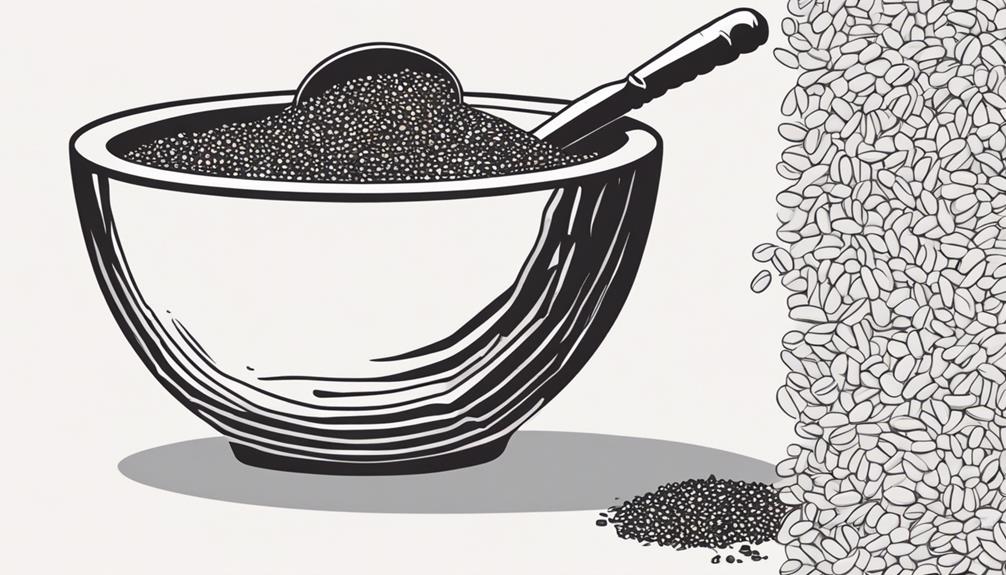Did you know that approximately 34.2 million Americans have diabetes, with 1 in 5 of them being unaware of their condition?
Controlling diabetes can be a challenging journey, but have you ever considered turning to nature for help?
Discover how common herbs like cinnamon, bitter melon, fenugreek seeds, turmeric, and aloe vera gel can potentially play a role in managing diabetes.
These natural remedies might just be the missing piece in your quest for better blood sugar control.
Key Takeaways
- Cinnamon, bitter melon, fenugreek, turmeric, and aloe vera aid in diabetes management.
- These herbs lower blood sugar, improve insulin sensitivity, and offer antioxidant benefits.
- Incorporate them into your diet through dishes or supplements for effective blood sugar control.
- DIY herbal remedies provide natural support for stable blood sugar levels and overall diabetes management.
Benefits of Cinnamon for Diabetes

To effectively manage your diabetes, consider incorporating cinnamon into your daily routine as it has been shown to offer various benefits for blood sugar control. Cinnamon research indicates that this aromatic spice may help lower blood sugar levels by improving insulin sensitivity and slowing down the absorption of carbohydrates in the digestive tract. Additionally, cinnamon contains bioactive compounds that have antioxidant properties, which can reduce inflammation and oxidative stress in the body, both of which are factors that play a role in diabetes management.
Incorporating cinnamon into your diet can be easy and delicious. Try sprinkling a teaspoon of cinnamon on your morning oatmeal or adding it to your coffee for a flavorful twist. You can also experiment with cinnamon recipes like cinnamon-spiced roasted sweet potatoes or cinnamon-apple overnight oats. These simple yet tasty dishes can help you reap the potential benefits of cinnamon for your blood sugar levels while adding variety to your meals.
Using Bitter Melon to Lower Blood Sugar
Consider incorporating bitter melon into your diabetes management routine as it has shown potential in lowering blood sugar levels. Bitter melon, also known as bitter gourd or Momordica charantia, is a fruit that's commonly used in various cuisines and traditional medicines. Research suggests that bitter melon may help improve glycemic control in individuals with diabetes due to its bioactive compounds that mimic insulin effects and promote glucose uptake.
To include bitter melon in your diet, you can explore various bitter melon recipes such as stir-fries, curries, or even juicing the fruit. Additionally, bitter melon supplements are available as natural alternatives for those who may not enjoy the taste of the fruit itself. When using bitter melon or its supplements, it's essential to monitor your blood sugar levels carefully, as they may interact with diabetes medications.
Incorporating bitter melon as part of your holistic diabetes management plan alongside a balanced diet and regular exercise could potentially offer additional support in controlling blood sugar levels naturally.
Fenugreek Seeds for Diabetes Management

Fenugreek seeds have demonstrated potential in aiding diabetes management through their beneficial effects on blood sugar levels. Research suggests that fenugreek seeds contain soluble fiber, which can help slow down the absorption of carbohydrates and sugar in the body. This, in turn, may lead to more stable blood sugar levels over time.
One way to incorporate fenugreek seeds into your diabetes management routine is by preparing fenugreek tea. To make fenugreek tea, simply steep fenugreek seeds in hot water for a few minutes and then strain the seeds before consuming the tea. The tea can be enjoyed hot or cold, depending on your preference.
Another option is to use fenugreek seed powder in your cooking or as a supplement. Fenugreek seed powder can be added to various dishes like soups, stews, or smoothies to reap its potential benefits for managing blood sugar levels.
Including fenugreek seeds in your diet, whether through tea or seed powder, may be a natural and complementary approach to help support your diabetes management efforts.
Turmeric's Role in Regulating Blood Glucose
Turmeric, a widely researched herb known for its anti-inflammatory properties, shows promise in regulating blood glucose levels, complementing the potential benefits of fenugreek seeds in diabetes management. Turmeric benefits for blood glucose control include:
- Curcumin: The active compound in turmeric, curcumin, has been studied for its potential to lower blood sugar levels.
- Insulin Sensitivity: Turmeric may improve insulin sensitivity, helping cells better respond to insulin and regulate blood sugar.
- Anti-Inflammatory Effects: By reducing inflammation, turmeric can support overall metabolic health and possibly aid in blood sugar regulation.
- Oxidative Stress Reduction: Turmeric's antioxidant properties may help combat oxidative stress, which plays a role in diabetes development.
- Cholesterol Regulation: Some research suggests that turmeric could help manage cholesterol levels, which are important for individuals with diabetes.
Incorporating turmeric into your diet, along with other lifestyle modifications, could be a valuable addition to your efforts in managing blood glucose levels naturally.
Aloe Vera Gel for Diabetes Control

Research suggests that incorporating Aloe Vera gel into your diabetes management plan may offer potential benefits in controlling blood glucose levels. Aloe vera, known for its anti-inflammatory and antioxidant properties, has been studied for its possible role in managing diabetes.
To utilize aloe vera for diabetes control, you can explore various aloe vera recipes. One simple method is to mix a tablespoon of aloe vera gel with water or juice and consume it daily. Alternatively, you can incorporate aloe vera gel into smoothies or salads for a refreshing twist.
When applying aloe vera gel, ensure you're using a high-quality, pure product to reap the maximum benefits. Gel application techniques can vary, but generally, you can apply a thin layer of aloe vera gel topically to the skin or mix it with a carrier oil for a soothing massage.
Always perform a patch test before applying aloe vera gel to a larger area to check for any adverse reactions. Experiment with different application methods to find what works best for you in managing your diabetes naturally.
Frequently Asked Questions
Are There Any Potential Side Effects or Interactions to Consider When Using These Herbs for Diabetes Control?
When using herbs for diabetes, it's crucial to be aware of potential risks and interactions. Always consider safety precautions and warnings. Prioritize your health by consulting with a healthcare provider to avoid complications.
How Should These Herbs Be Incorporated Into a Daily Routine for Optimal Diabetes Management?
To incorporate herbs for optimal diabetes management, start by consulting a healthcare provider. Integrate herbs gradually into your daily routine, monitor for interactions with medications, follow dosage recommendations, align with dietary guidelines, and embrace lifestyle changes for holistic support.
Can These Herbs Be Used in Conjunction With Traditional Diabetes Medications?
Yes, these herbs can be used in conjunction with traditional diabetes medications, but it's crucial to be mindful of potential herb combinations and medication interactions. Consider consulting your healthcare provider for guidance on herb effectiveness and possible dosage adjustments.
Are There Specific Dosage Recommendations for Each Herb When Using Them to Control Diabetes?
To maximize the benefits of herbal combinations in managing diabetes, it's crucial to heed dosage recommendations. Always consult a healthcare provider to tailor the dosages to your needs, ensuring safe and effective usage.
Are There Any Specific Dietary or Lifestyle Recommendations That Should Be Followed When Using These Herbs for Diabetes Control?
When using herbs for diabetes control, pay attention to dietary restrictions like limiting sugar and carbs. Incorporate regular exercise routines to support overall health. These lifestyle changes, combined with herbal remedies, can help manage diabetes effectively.
Conclusion
In conclusion, incorporating these natural remedies into your diabetes management plan can help regulate blood sugar levels effectively. Remember, prevention is key in controlling diabetes.
By utilizing the power of herbs like cinnamon, bitter melon, fenugreek seeds, turmeric, and aloe vera gel, you can take proactive steps towards improving your overall health.
So, why not give these herbal remedies a try and see the positive impact they can have on your diabetes management journey? After all, knowledge is power.